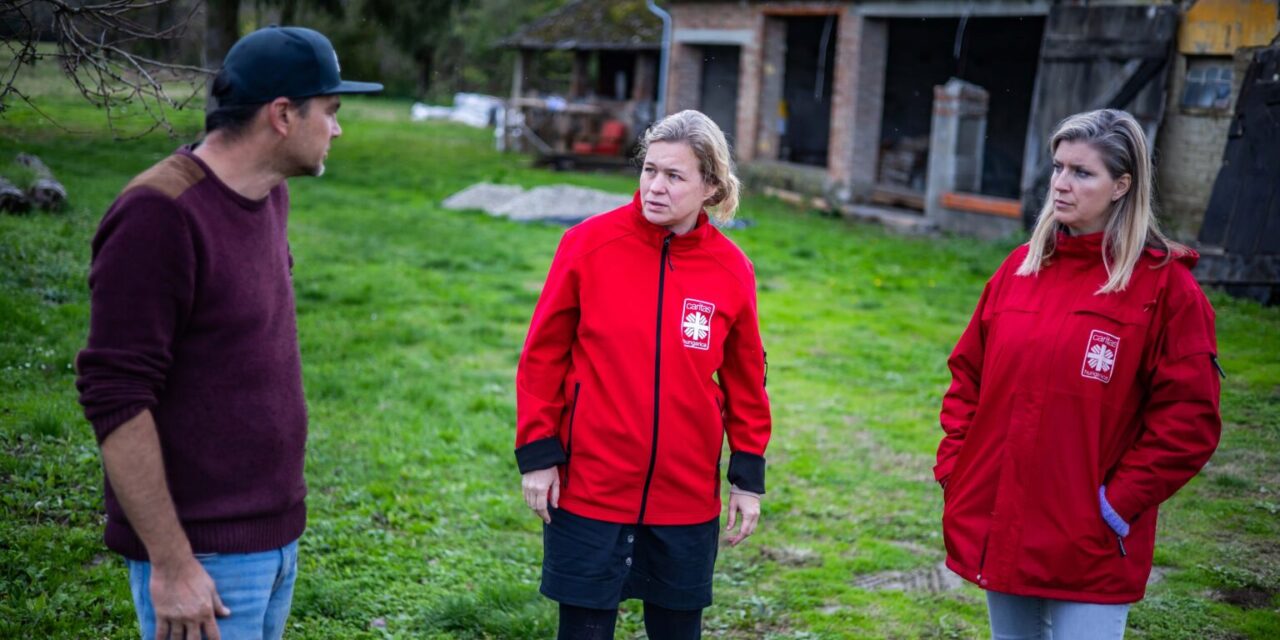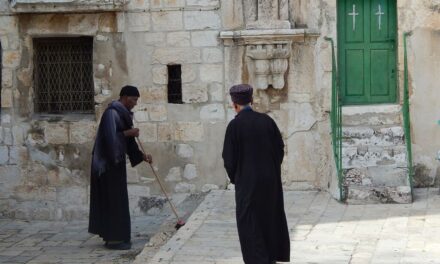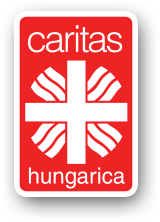Anikó Nagy, the catch-up and economic development program coordinator of Katolikus Karitász, plans with her colleagues every day with inexhaustible creativity so that the strengthened community of eleven small villages in southern Hungary can rise out of the trap of poverty with their help.
In the interview, community building and economic development, the internal functioning of settlements, and spirit-raising teamwork were also discussed.
What personal connection do you have to the countryside?
I'm from Budapest, I have no living ties. I simply feel good in the countryside, and rural development is very important to me, including the development of the social economy in Hungary. Many things have changed in the world and currently the village as a function is vacant, even if it is not a disadvantaged settlement. And if there are even such aggravating circumstances as distance and isolation, then absolutely.
How do we imagine your work at Karitász?
There is a rapidly developing team that operates the eleven Points of Presence and the Moving Playground in the most hidden corners of Baranya. Jelenlét Pontok is a community and development center that makes services that have been missing for decades available to the disadvantaged. In addition to community development and social work, the colleagues try to implement new activities together with the local community. I am the filter in this design process. First, opportunities, gaps and strengths must be assessed. If we held an economic development brainstorming day, on the basis of which, for example, we want to further develop pasta production in the village as part of the club session, then I have to bring the attitude to the team to think about where we can improve step by step, and in time even sell our homemade pasta .
Every two weeks I go to Baranya to visit my colleagues, and this is when original ideas can develop further, in real teamwork.
What is the biggest challenge in catch-up settlements?
People live in a poverty trap spanning generations, which drags them down more and more, because if opportunities are permanently narrowed, then both hope and the need for something better are lost. It is an unavoidable problem that transportation is not completely solved, because of this, these people are largely cut off from public services and workplaces, typically there is one Volán service in the morning and one in the evening, a quasi-school bus.
They can only get everywhere with Karitász's own vehicle: to a camp, to a sports competition, to a playful decathlon, to development activities, we transport new mothers to care during pregnancy, or, for example, there is a ceremonial kick-boxing exam in a South Transdanubia settlement, we can only transport the children of the eleven villages there by bus, who are passionate about sports.
Music and sports are very powerful tools for social work, because they can quickly achieve lasting results, and they also quickly build motivation in children. Cooking together, hand-made products that can be taken home, and the garden also have a strong motivational power, because they nicely reflect the energy invested: if I plant and water it, it will grow, if I don't water it, it won't grow; moreover, if we do it together, it's easier and I can even learn from the other. We try to incorporate these into everyday life and economic development efforts.
What can be counted as success in your villages?
While community development and children's development in the Catching Up Settlements (FeTe) program already have spectacular results, the economic development leg, which is based on social work and builds on limited local opportunities, is developing very slowly. Children and families with small children are at the center of our complex development work. In order for their chances to be better and the results to last, families need a fixed, predictable income. At this point in the long-term development process, success means a strong local community willing to do something and close regional cooperation.
This was clearly demonstrated in Piskó, at the event organized to inaugurate the renovated Jelenlét Point in the autumn: the locals took an active part in the organization, baked and cooked, did DIY, the children put on a show and the cooperating partners expressed appreciation for the teamwork shown here.
The regional team came together very nicely, because the team spirit of helping each other is alive, the settlements, the Presence Points and the social institutions complement and help each other. If the community mobilizes for a cause, as it did in Piskó, I think it's a pretty serious feeling of success, you can build on it. From an economic development point of view, the next rung on the ladder of success will be if we can start some employment workshops next year, where housewives can gain new knowledge and additional income, because their their reintegration into the labor market is one of the most difficult issues.
How did you convince the parents, who follow a very traditional, fearful-protective family pattern, to let their children go to the Presence Points and your programs?
The children like to go to the Jelenlét Pont houses, there is actually no need to send them, because good things happen to them there: there are also colorful programs in the summer when there is a break, and during school hours they get help with their studies. They get access to things they wouldn't otherwise have access to. The children living in the settlement receive professional help for their development in the first 1,000 days of their lives and throughout their kindergarten school studies. Baby-mom classes, physical therapy, speech therapy, classroom-type and other skill-building classes await them. In many cases, there is no problem with their abilities, just the sample and the fact that they are very far away, e.g. from the music school, they are restricted.
The younger someone is, the more open they are to new things, which is why children are our primary target group. Through them, you can also reach the parent.
How will the community be self-sufficient?
With small steps. From a long-term point of view, the significance of our presence is that people living in the village move out of their homes and see something new that they can try, and maybe this gives them motivation. There are settlements where the women's club has already started as the next step of the oven-cooking club. Here we were able to talk about self-knowledge and life management issues. Of course, we are talking about very slow constructions, but we may even develop skillfully to the point that through the Presence Points they will learn skills that will improve their position on the labor market. First, we would like to be able to imitate the workplace for them in protected conditions, in an employment workshop, in a few hours, even earning additional income. That way mothers could also work.
We don't even think about the complex skills required in a workplace: you have to resolve conflicts, you have to be able to work in a group, you have to solve tasks independently, you have to follow rules, you have to go to work even if it's raining or if you have a personal problem.
Karitász and the FeTe network behind it can facilitate this part: we provide labor market mentoring and training, help you write a resume, and help you overcome self-esteem problems. We help them to have a kind of routine for job interviews in the typical recruitment tasks given by HR. It's a challenge even for an average person in the city, let alone them. Often there is also the learned helplessness factor: if you haven't succeeded, you won't. In parallel with the development of skills, we would like to slowly start the community production line.
What workshops have been started so far in order to produce community products?
The ability to plan for the long term is one of the things that can wear out due to continuous poverty or can be pushed into the background in settlements that are catching up. Workshops are popular when you can make something that you can take home afterwards. This is the main attraction for them, and we think that this can be carried forward into a competence development process, which can end with a product.
These attempts can always work well if the members of the involved target group see value in what we are dealing with.
In the eleven settlements, there were different workshops according to local interest: many people like plumbing and feminine things, in other places baking and cooking are in the center, since they are also women and mothers like you or me. There are places where rosaries are made for religious reasons; there are places where the things produced in the health garden were very nicely processed in the summer together with the children, and they made syrup, pickles, and jam from what they produced or what they received as a donation. These activities are suitable for strengthening the community, since we produce together, process together, can eat it at the programs, give it as a gift or in exchange for a donation, and the surplus can even be sold. This is a huge success and we want more of it.
Featured image: Tibor Vermes/777blog












